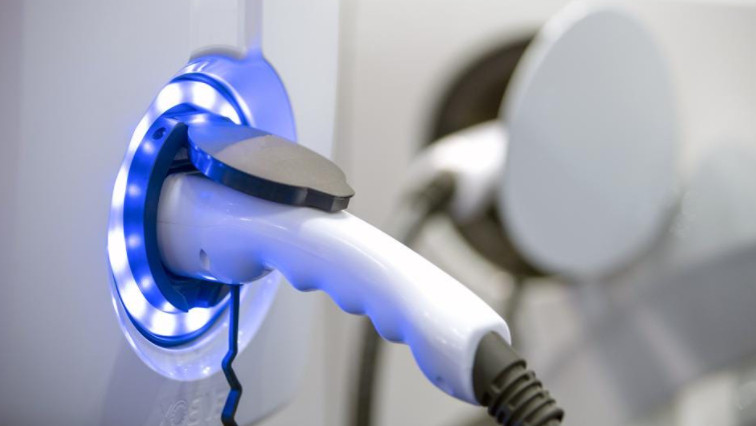There are ample reasons to feel good about electric vehicles, but consumers must consider one thing before they drive off with one: battery safety. Lithium-ion batteries - a feature of every electric car - have several safety concerns. With any nascent technology, it's crucial to research where things stand. Consumers should do their homework and look at the potential downside of electric vehicles and their benefits before signing on the dotted line to purchase. They should also make sure they know how to protect their batteries - we'll get into that below.
The Big Picture
Lithium-ion batteries power every electric vehicle on the road. But there are problems with these batteries: overheating and flammability, short life spans and underperformance, toxicity and logistics challenges, such as proper disposal and transportation.
Suppose a lithium-ion battery short circuits, for example, which can happen from causes including a battery cell puncture or heat exposure during a car accident. These batteries can even spontaneously combust because of silicon expansion, dendrite formation or other reasons. In that case, the battery produces a spontaneous fireball explosion that heats to 1300°F in milliseconds and can be impossible to survive. In April, another deadly lithium-ion battery fire occurred in a Tesla car crash in Houston, Texas; it took firefighters more than four hours and 30,000 gallons of water to put out the blaze.
Researchers are working to improve existing lithium-ion batteries. Scientists at Deakin University in Australia, for example, are developing a lithium metal battery prototype that is flame resistant. The technology has been under development since 2016, but the University received government funding to help develop it further, and recent results are promising. Even still, it appears the broad commercialization of lithium metal batteries is years away.
Potential Downsides
Manufacturers have happily shared the environmental and cost benefits of electric vehicles. They rarely, if ever, share the potential downsides. The electronics industry has long known about the potential risks of the flammable formulas in lithium-ion batteries but hasn't disclosed them to consumers unless pressured. Other consumer electronics, such as hoverboards and hotspot devices and even e-cigarettes, face the same risks as lithium-ion batteries. The sheer volume of cases has led to an enormous number of lawsuits and antitrust suits against manufacturers. Manufacturers also haven't been open about hidden charges that will continue to drive up costs of electric vehicles. Lithium-ion batteries rely on a rare metal called cobalt that is expensive and hard to source. Finally, there is still a shortage of accessible charging stations, particularly in big cities.
How To Stay Safe
While all these things are worth considering, consumers are not totally at the mercy of the automakers. There are many things they can do before and after an electric vehicle purchase and safety practices that can help mitigate risks. They include the following:
Smart Everyday Battery Safety: Knowing how to keep your lithium-ion battery safe is a big plus. There are a few simple steps each consumer should take. There is a desire for lithium-ion batteries to be lightweight yet hold a significant charge, making it easy for batteries to be damaged. As a result, users should not keep batteries in very hot vehicles. It's also crucial that users not overcharge batteries. When you do this repeatedly, it can damage the battery, which increases the risks of explosion. Users should also avoid "fast charging," which can destabilize the battery.
Consider A Shutdown Separator: In layman's terms, a shutdown separator separates the two volatile parts of the electric battery yet still allows the charging to occur. At the same time, many commercial electric vehicles have baseline separators with built-in shutdown mechanisms as manufacturers are using shutdown separators that can provide additional protection. However, they are not absolute as fires are still occurring even though most of the separators in use have shutdown properties. Due to the increasing demand for these separators, many plants are working to boost output.
Look Into Non-Flammable Batteries: Technology is in development that will help deliver on the environmental and cost benefits promised by electric vehicles and keep consumers safe. For example, my company, Nanotech Energy, has developed non-flammable batteries available for the electric and portable electronics markets that combine graphene-based electrodes with a custom electrolyte that produces a high-performing non-flammable system. The technology utilizes the material graphene, which is 200 times stronger than steel. Elsewhere, a team at Stanford University is developing "fireproof" solid-state electrolyte (SSE) for lithium-ion batteries, however they are still years away from being practically available.
Getting On The Road
There's a tremendous desire to jump in and purchase an electric car. Everyone wants to do their part for the greater good of the environment. Aside from that, many new electric vehicles are beautifully designed, such as Porsche Taycan, Lightyear One, Tesla Roadster and Polestar. Discretion and patience are warranted - but doing a little research and learning about your presumptive purchase will keep you safe on the road.
Read the original article on Forbes.







